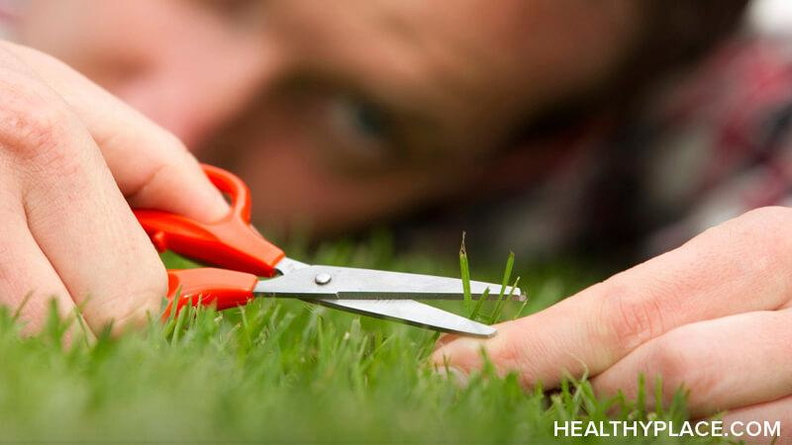3 Ways Perfectionism Can Lead to Low Self-Esteem

Perfectionism and low self-esteem are intricately related. It took me a while to realize I was a perfectionist. And even when I was aware of my tendency to want everything to be perfect, I never saw it as a problem. Struggling to accept mistakes and flaws, and being extremely self-critical, were just some idiosyncrasies I had. But over time, I began to see how my inability to deal with imperfections was impacting my mental health. I could not forgive myself for errors; I would obsess over mistakes and regrets; I held myself to incredibly high standards -- and would be crushed when those standards weren’t met. My perfectionism was creating low self-esteem.
3 Ways Perfectionism Leads to Low Self-Esteem
One major way perfectionism has affected my mental health is in terms of my self-esteem. If I didn’t feel like I was the most intelligent person in the room, then I would feel awful about myself. If I experienced a setback or things didn’t go as planned, then I thought I must be a failure and broken in a fundamental sense.
Perfectionism, if channeled in the right way, can be beneficial, leading to great accomplishments. However, it is a mindset that all too often becomes unhealthy. Here are three reasons why being a perfectionist can ruin your self-esteem.
1. Constantly Seeing the Negative in the Positive
As a perfectionist, I get into this trap of always trying to find the negative in the positive. This could relate to a personal accomplishment, praise, a compliment, or experience. Whatever the good thing is that should be a source of gratitude and positive feeling, I will shine a negative light on it.
When you’re a perfectionist, if something isn’t flawless, then you cannot enjoy or appreciate it as others can. The bar you set is unrealistic and too demanding. Your evaluations of yourself become harsh. As a result, you struggle to accept or like yourself.
2. Having to Be the Best
It’s become obvious to me just how unstable my self-esteem can be. A lot of the time, it is heightened or lowered based on how I compare myself to others. I’ve been learning to keep these kinds of comparisons in check, as I know how unproductive and unhealthy they can be.
Being a perfectionist has meant, at times, that I would only feel good about myself if I could feel assured I was the smartest, nicest, funniest, wisest, and most interesting person in a social setting. Perfectionism means you are constantly striving to be the best. And when you are confronted with the reality that you are not the best at something, your self-esteem can suffer. Perfectionism reliably leads to the belief that you are never good enough.
3. Taking Things Personally
Perfectionism often entails an unhealthy relationship to criticism and the opinions of others. Just as you inflate your mistakes beyond proportion so they become this massive problem, you may also distort other people’s comments about you. Anything remotely critical is exaggerated to the point where you become irrevocably bad. With a perfectionist mindset, you may also prime yourself to self-judgment, so even if someone isn’t criticizing you, that’s how you interpret their comments.
I’m aware that I can sometimes take things quite personally. Someone may disagree with me, criticize something I’ve written or said, or prove me wrong – and I feel my self-esteem drop. With practice, however, I’ve been able to counteract this negative, habitual pattern. Writing has been a great teacher, in this respect. Since I have become accustomed to criticism in my writing career and understand the importance of it, I don’t take it personally as much as I used to.
Challenging my perfectionist tendencies and giving myself a break has provided a lot of relief. It’s been a crucial way of achieving a healthier, more stable form of self-esteem.
APA Reference
Woolfe, S.
(2018, October 17). 3 Ways Perfectionism Can Lead to Low Self-Esteem, HealthyPlace. Retrieved
on 2026, January 14 from https://www.healthyplace.com/blogs/buildingselfesteem/2018/10/3-ways-perfectionism-can-lead-to-low-self-esteem